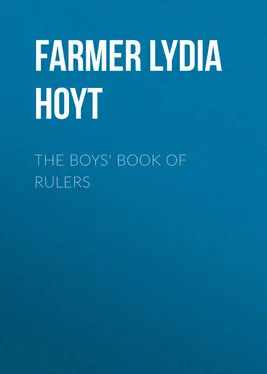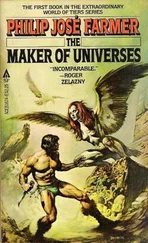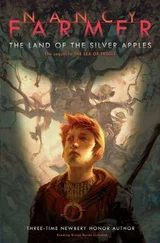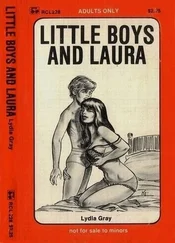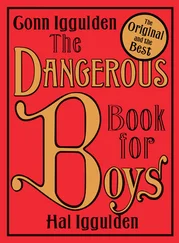Lydia Farmer - The Boys' Book of Rulers
Здесь есть возможность читать онлайн «Lydia Farmer - The Boys' Book of Rulers» — ознакомительный отрывок электронной книги совершенно бесплатно, а после прочтения отрывка купить полную версию. В некоторых случаях можно слушать аудио, скачать через торрент в формате fb2 и присутствует краткое содержание. Издательство: Иностранный паблик, Жанр: foreign_antique, foreign_prose, на английском языке. Описание произведения, (предисловие) а так же отзывы посетителей доступны на портале библиотеки ЛибКат.
- Название:The Boys' Book of Rulers
- Автор:
- Издательство:Иностранный паблик
- Жанр:
- Год:неизвестен
- ISBN:нет данных
- Рейтинг книги:4 / 5. Голосов: 1
-
Избранное:Добавить в избранное
- Отзывы:
-
Ваша оценка:
- 80
- 1
- 2
- 3
- 4
- 5
The Boys' Book of Rulers: краткое содержание, описание и аннотация
Предлагаем к чтению аннотацию, описание, краткое содержание или предисловие (зависит от того, что написал сам автор книги «The Boys' Book of Rulers»). Если вы не нашли необходимую информацию о книге — напишите в комментариях, мы постараемся отыскать её.
The Boys' Book of Rulers — читать онлайн ознакомительный отрывок
Ниже представлен текст книги, разбитый по страницам. Система сохранения места последней прочитанной страницы, позволяет с удобством читать онлайн бесплатно книгу «The Boys' Book of Rulers», без необходимости каждый раз заново искать на чём Вы остановились. Поставьте закладку, и сможете в любой момент перейти на страницу, на которой закончили чтение.
Интервал:
Закладка:
The story relates that Harpagus did not display his terrible despair by word or look; and when the wicked king asked him if he knew what he had been eating, he replied that he did, and whatever was the will of the king was pleasing to him. Such shocking cruelties reveal the wickedness of those despotic times.
Harpagus satisfied his revenge against the cruel Astyages, many years afterwards, in a manner which will be disclosed as this story continues. A king whose greed of power could condemn an own grandson to death would not scruple at other crimes. Astyages now again consulted the soothsayers as to his safety in recognizing Cyrus as his grandson and giving him his royal place at court. The Magi now replied, that as Cyrus had already been a king, even though it was only in a childish game, still, as he had been called a king, the oracles had been fulfilled, and Astyages need fear no further danger to his kingdom. Astyages therefore sent Cyrus to his parents in Persia, who received their long-lost son with overwhelming delight; and the youthful Cyrus was no doubt astonished and rejoiced to find himself the son and grandson of powerful kings, rather than a simple peasant boy, the son of a poor herdsman.
Cyrus is described by the historians as being tall and handsome, and excelling in all youthful exploits.
Xenophon describes the life of young Cyrus in the court of his father Cambyses, king of Persia. The sons of all the nobles and officers of the court were educated together in the royal palace. They were not taught to read, as there were no books, but they had certain teachers who explained to them the principles of right and wrong, and described to them the various laws of the land, and the rules by which controversies should be settled. These were put to practical use in deciding the various cases which occurred among the boys themselves; and judges were chosen from their number who should discuss and decide these questions. Right decisions were rewarded, and wrong ones punished. Cyrus himself was once punished for a wrong decision. The case was this: —
A larger boy took away the coat of a smaller boy, whose coat was bigger than his own, and gave him his own smaller coat. The smaller boy appealed to Cyrus, who decided that each boy should keep the coat that fitted him. The teacher condemned his decision in these words, —
“When you are called upon to consider a question of what fits best, then you should determine as you have done in this case; but when you are appointed to decide whose each coat is, and to adjudge it to the proper owner, then you are to consider what constitutes right possession, and whether he who takes a thing by force from one who is weaker than himself, should have it, or whether he who made it or purchased it, should be protected in his property. You have decided against law and in favor of violence and wrong.”
The boys at this Persian court were taught many kinds of manly exercises. They were trained to wrestle and run, and were instructed in the use of all kinds of arms then known. Each one was furnished with a bow and arrows, a shield, a sword, or dagger, which was worn at the side in a scabbard, and two javelins, one of which they were to throw, and the other to keep in the hand for use in close combat with the wild beasts which they might encounter in their hunting expeditions. These excursions were often long and fatiguing, which they took by turns with the king in the neighboring forests.
They were subjected to long marches, to cold and hunger and storms, and sometimes dangerous conflicts. These experiences were considered necessary to fit them to become good soldiers in the future.
When Cyrus was about twelve years of age, he was invited by his grandfather Astyages to make him a visit in Media. When Cyrus arrived in Media with his mother Mandane, he was surprised at the magnificence and pomp of the royal court; as the manners and habits of the Persians were very simple, and as he had been sent to Persia as soon as his royal rank had been discovered, he had not before had an opportunity of seeing the splendor of his grandfather’s court.
In his first interview with Astyages, Cyrus displayed his great tact and natural courtesy. When he came into the presence of his grandfather, who wore a purple robe richly embroidered with gold and covered with precious stones, and bracelets upon his arms, and a long, flowing wig, while his face was painted and powdered, Cyrus exclaimed, —
“Why, mother, what a handsome man my grandfather is!”
Cyrus was dazzled by the great display around him, for in the Persian court, Cambyses his father, and all his nobles, were clothed with great simplicity. Mandane then said to Cyrus, —
“Which one do you think the handsomer man, your father or your grandfather?”
It was a very unwise question to ask a child, but Cyrus was equal to the emergency, and replied with great tact and politeness, —
“My father is the handsomest man in Persia, but my grandfather is the handsomest of all the Medes.”
Astyages was much pleased with the aptness of this reply, and Cyrus became a great favorite with his grandfather, who lavished upon him costly garments, rich feasts, rare jewels, and the attentions of a retinue of servants. But after the first novelty had passed away, Cyrus preferred his more simple raiment and plainer food.
At one time, Astyages invited Cyrus and his mother to one of his grand feasts in his palace, and ordered the rarest viands to be served for Cyrus in the most elegant and costly dishes. Instead of being flattered, Cyrus showed no particular pleasure or surprise, and when Astyages asked him if he did not delight in such rich and delicate food, and if the feast before him was not much finer than any he had seen in Persia, Cyrus replied, —
“We manage much better in Persia; it is very troublesome to eat a little of so many things.”
“How do you manage in Persia?” asked Astyages.
“When we are hungry, we eat plain meat and bread, and so we get health and strength and have very little trouble,” answered Cyrus.
Astyages then told Cyrus that he might continue his plain fare in Media, if he thought it was better for his health. Cyrus then asked his grandfather if he would give him all the costly dishes before him to do as he wished with them. To this Astyages consented, and Cyrus, calling up one of the attendants after another, presented to them as gifts the various elegant dishes with their contents. To one he said, “I give you this because you serve the king faithfully”; to another, “I make you this present because you are faithful to my mother”; and to another, “Because you have taught me to throw the javelin.” Thus he went on until all the gifts had been disposed of. Now the king had one servant, whom he honored above all others, who held the office of cup-bearer.
In those days this was an important trust, for those despotic monarchs possessed so many enemies that they were in constant danger of assassination or of being poisoned. The king’s cup-bearer must superintend the food of his master, and taste all wines himself before offering them to the king.
Great dexterity and grace were necessary to perform the latter service acceptably, as the king’s cup must not be placed to the lips of his cup-bearer, but a small portion must be poured into the palm of his hand, and lifted gracefully to his mouth.
Astyages’ cup-bearer was a Sacian; he was an officer of high rank, tall and handsome, and magnificently dressed. In distributing his gifts, Cyrus had neglected this officer, and when Astyages asked him his reason, Cyrus replied that he did not like the Sacian. Astyages inquired the cause of this dislike, and remarked, “Have you not observed how gracefully and elegantly he pours out the wine for me, and then hands me the cup?”
Читать дальшеИнтервал:
Закладка:
Похожие книги на «The Boys' Book of Rulers»
Представляем Вашему вниманию похожие книги на «The Boys' Book of Rulers» списком для выбора. Мы отобрали схожую по названию и смыслу литературу в надежде предоставить читателям больше вариантов отыскать новые, интересные, ещё непрочитанные произведения.
Обсуждение, отзывы о книге «The Boys' Book of Rulers» и просто собственные мнения читателей. Оставьте ваши комментарии, напишите, что Вы думаете о произведении, его смысле или главных героях. Укажите что конкретно понравилось, а что нет, и почему Вы так считаете.
